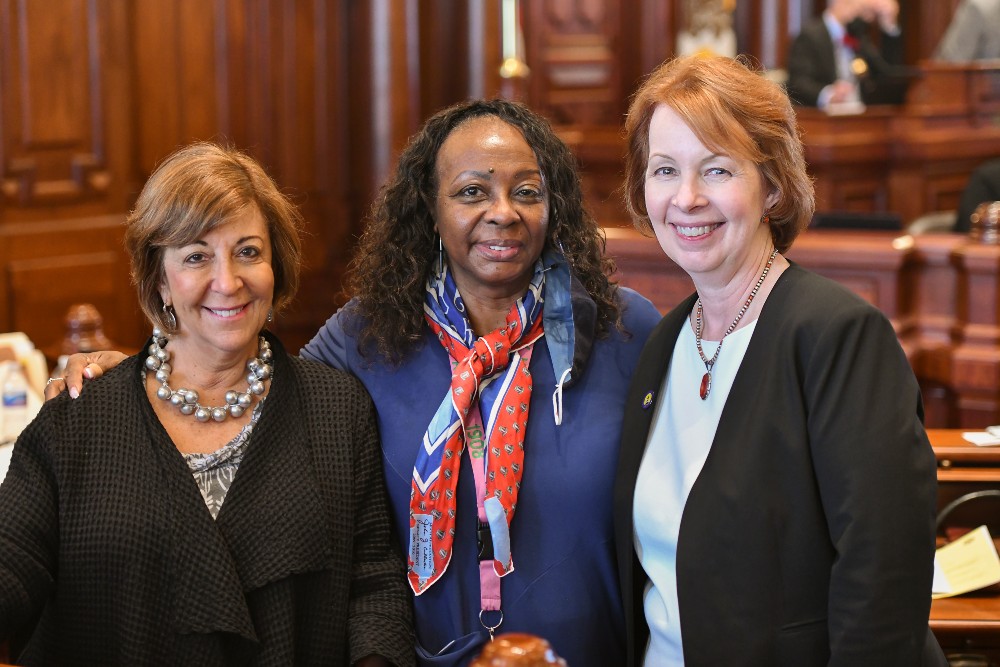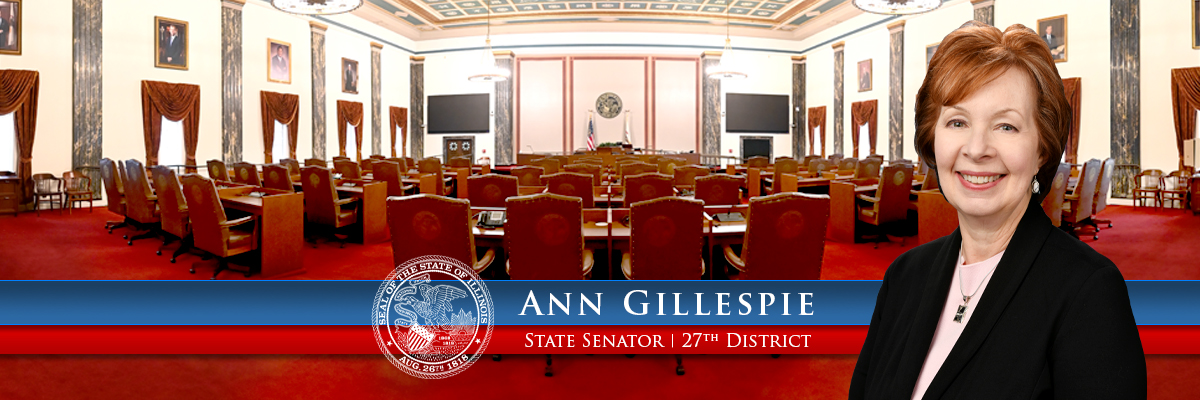 SPRINGFIELD – To help working families, State Senator Ann Gillespie (D-Arlington Heights) passed legislation in the Illinois Senate to encourage the development of affordable housing units.
SPRINGFIELD – To help working families, State Senator Ann Gillespie (D-Arlington Heights) passed legislation in the Illinois Senate to encourage the development of affordable housing units.
“We need a long-term strategy for affordable housing,” said Gillespie (D-Arlington Heights). “Creating incentives in the housing market will produce better options and more stable lives for working families across the state.”
House Bill 2621 combines measures from affordable housing initiatives introduced this year by Senators Mattie Hunter (D-Chicago) and Sara Feigenholtz (D-Chicago). It creates incentives in the housing market for affordable housing units, enforces the mandatory affordable housing plan for cities with at least 1,000 residents and changes how the Cook County Assessor’s office calculates the tax liability for affordable housing complexes.
“People are still recovering from the financial struggles brought on by the pandemic, making affordable housing more necessary than ever before,” said Hunter. “With many people behind on rent and struggling with unemployment, we have to do more to help them.”
The legislation creates two property tax incentives: one for rehabilitation and one for new construction of affordable housing units. These incentives address the lack of affordable options in high opportunity areas, as well as in areas of need. To receive either incentive property owners must commit to keeping a fixed percentage of units affordable for extended periods specified in the legislation.
“The need for affordable housing across Illinois has continued to escalate as the pandemic continues,” said Feigenholtz. “The housing crisis is one of the most crucial issues we are facing in Illinois, and providing landlords with incentives to offer tenants more affordable rent is a necessary step forward.”
House Bill 2621 also creates the COVID-19 Affordable Housing Grant Program to build and preserve up to 3,500 affordable rental homes. The Illinois Housing Development Authority (IHDA) will administer grants to properties awarded a federal Low Income Housing Tax Credit, with priority given to projects that contract with organized labor, apprenticeship programs, and women-, veteran- and minority-owned contractors. IHDA would enforce the program.
The measure also strengthens the current law that requires cities of at least 1,000 residents to submit an affordable housing to submit a plan to IHDA. Both IHDA and the Attorney General would be given greater authority to enforce these plans.
The legislation also requires the Cook County Assessor to consider the actual or projected income earned from an affordable housing development, rather than assessing the property as receiving market rate rental income. County assessors outside of Cook County are encouraged to use this model but are not required.
House Bill 2621 passed the Illinois Senate and awaits final consideration in the Illinois House.


